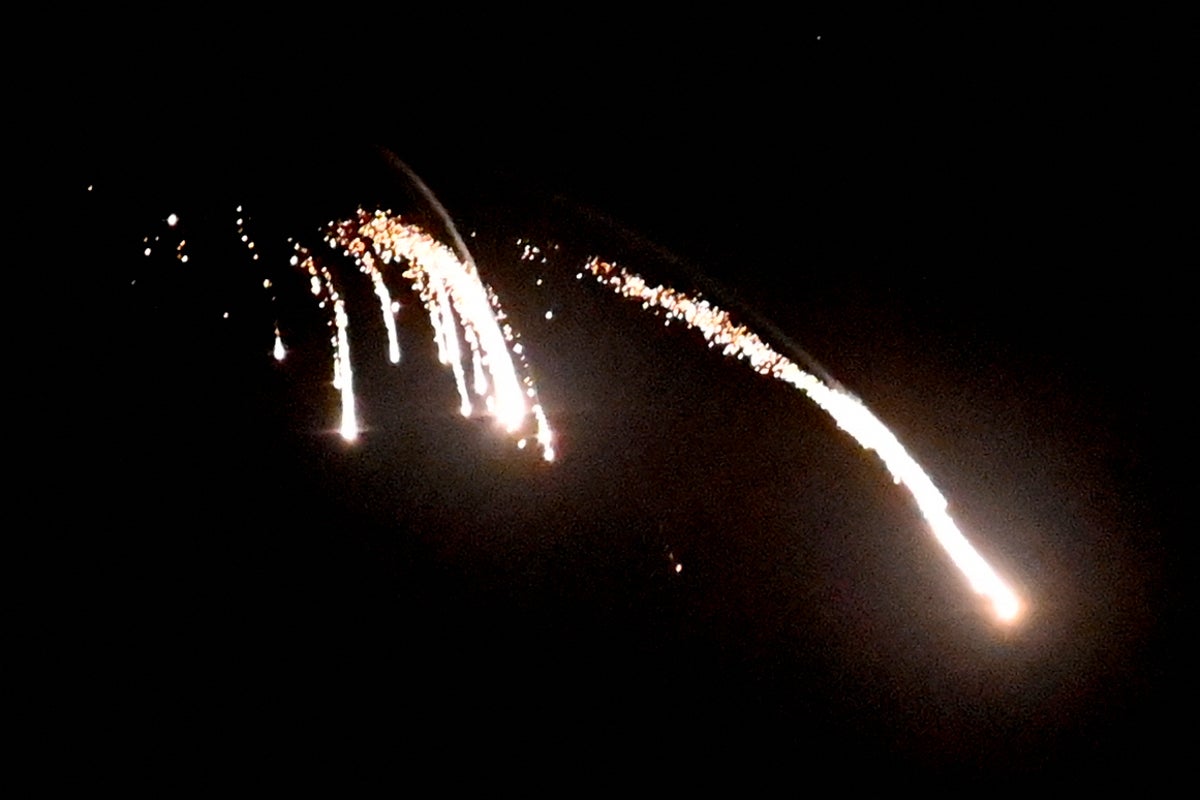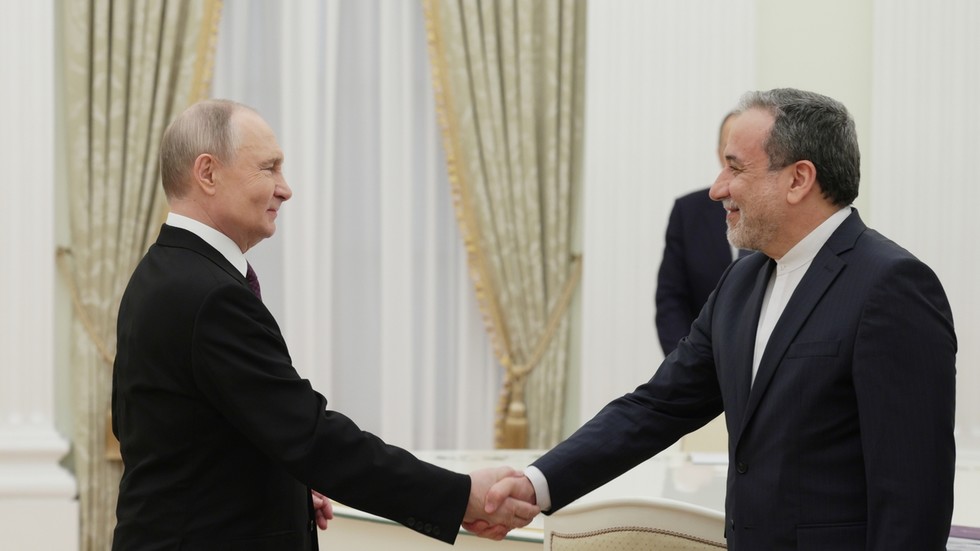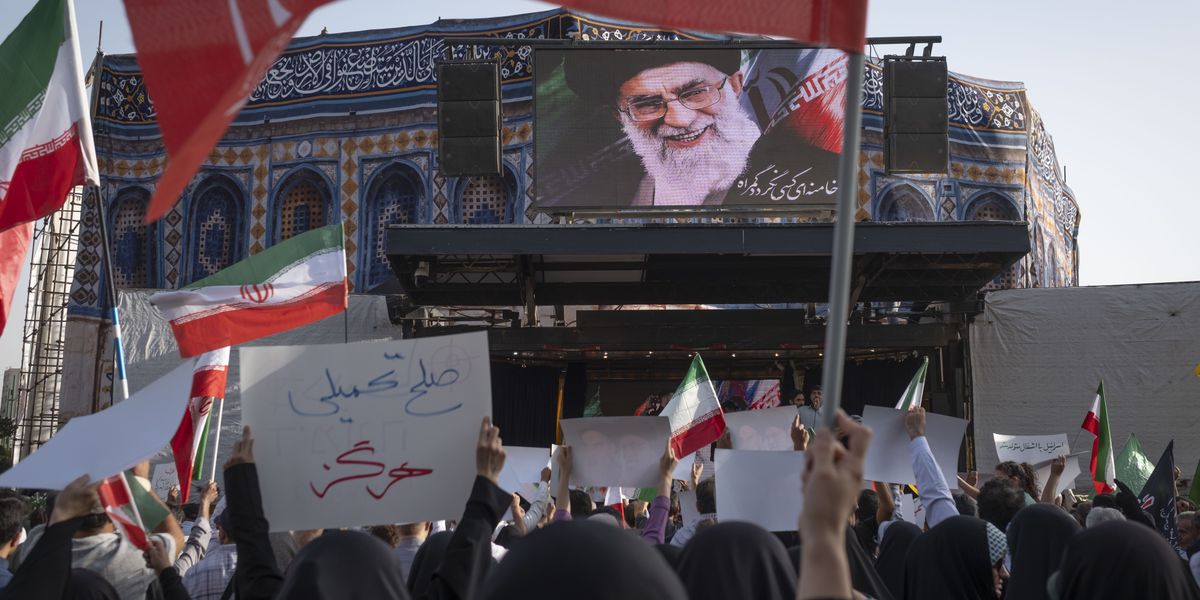
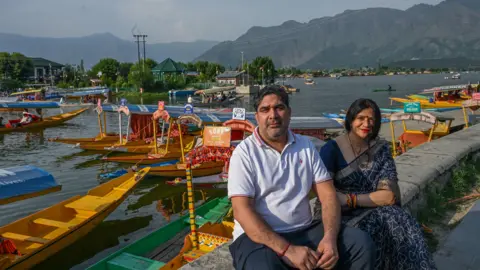 Abid Bhat
Abid Bhat
Ghanshyam Bharadwaj and Mamata Sharma travelled to Srinagar on the new train
Two months after a deadly attack in Indian-administered Kashmir scared away tourists and brought India and Pakistan to the brink of war, the picturesque valley nestled in the Himalayan mountains is beginning to see the first signs of a tourism revival.
Shabana Awwal is making videos of her children as they take turns to get on a water bike for a ride on the Dal Lake, Srinagar city's most iconic tourist spot.
Ms Awwal has travelled from the western state of Rajasthan with her husband and children in a group of 15 - all members of their extended family.
"I've visited Kashmir many times and seen all the major attractions such as Gulmarg, Sonmarg and Pahalgam and wanted to show all these places to my relatives," she tells the BBC.
The Awwals had planned their 10-day trip in March. "Summer in Rajasthan is unbearably hot so we'd planned to escape to Kashmir during the children's school vacation," she says.
But since she planned the trip, the circumstances here have drastically changed. On 22 April, militants attacked tourists visiting a beauty spot near Pahalgam town, killing 26 men.
Tourism is the mainstay of the economy of Jammu and Kashmir, a federally-administered territory, and this unprecedented targeting of tourists sent shockwaves through India. The authorities closed down 48 tourist destinations in the valley and two-thirds of them still remain shut.
Chief Minister Omar Abdullah, who's been lobbying hard to reopen these spots to attract visitors to the region, says "the impact of the attack was immediate and very widely felt".
"There was a mass exodus of those tourists who were already here, and a mass cancellation of those who were proposing to come. Then India and Pakistan, for all intents and purposes, were almost at war for a couple of days in May," Abdullah told the BBC.
"So the lasting impact has been felt both in the deterioration of relations between the two neighbouring countries and our tourism season for the year is going to be, what word do I use for it? I guess you can call it a disaster."

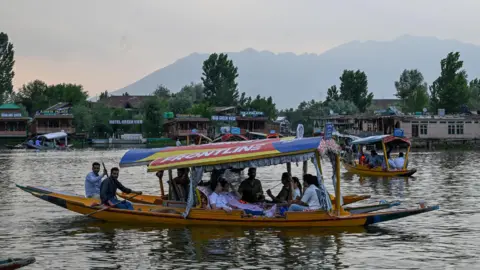 Abid Bhat
Abid Bhat
Shikaras - the colourful wooden boats on the Dal Lake - are a huge hit with visitors
Kashmir, claimed by both India and Pakistan, has been a flashpoint for decades. The nuclear-armed South Asian neighbours have fought two wars and a limited conflict over Kashmir. For more than a quarter of a century, the region has seen an armed insurgency against Indian rule, but even at its peak, tourists were rarely targeted.
Ms Awwal said her family decided to continue with their holiday because "we weren't really afraid" and "we thought we'll deal with whatever came our way".
"We are happy that we went ahead with our plans. The situation here is normal," she says and blames the "media hype" for the impression that it's unsafe to travel to Kashmir.
The Awwals are not alone in their optimism. Deepti and Anuj Gandhi of Jammu who made their plans just last week say "there's no summer holiday destination better than Kashmir".
"The children love to ride water bikes and then we'll go boating in the lake. We come here every year, so why break the tradition now?" she says.

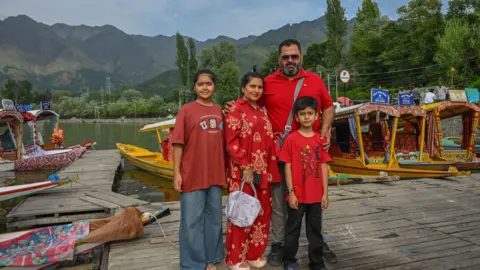 Abid Bhat
Abid Bhat
Anuj and Deepti Gandhi say they visit Srinagar with their children every summer holiday
Earlier this week, news agency ANI reported that a group of Polish tourists had arrived in the city.
The arrivals merely weeks after the Pahalgam attack are a cause of optimism for hoteliers, taxi drivers, tour guides, shopkeepers and owners of shikaras – the Venetian gondola-like narrow colourful wooden boats that ferry tourists on the Dal Lake.
In April, president of the shikara owners' association Haji Wali Mohammad Bhat says, the Dal Lake boulevard was packed with thousands of tourists, there were daily traffic jams and many complained they were finding it hard to get accommodation.
"The attack on tourists was unfortunate and tragic," he says.
"It has affected all of us and our livelihoods. Tourists are our life, tourism is our lifeline. God knows what sin we're paying for," he adds, despairingly.
Ravi Gosain, president of Indian Association of Tour Operators, who recently led a three-day "fact-finding trip" of tour operators - as "they are the ones who send travellers to Kashmir" says "for the past few years tourism was flourishing in Kashmir, lots of new hotels had been built, new vehicles were bought and new shops had opened".
Last year, the government said 23.6 million tourists visited Jammu and Kashmir, with 3.49 million visiting the valley.
This year, Mr Gosain says, the peak season has been lost in the valley, but tourism can still pick up.

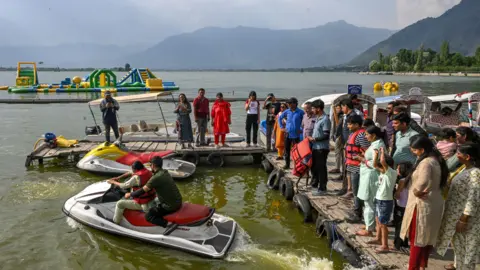 Abid Bhat
Abid Bhat
Shabana Awwal makes a video of a relative riding a water bike in Dal Lake
"Locals are very welcoming, hoteliers, tour guides and shopkeepers are very friendly and people are coming back. You can see it – all flights are coming in full, tourism is bouncing back quickly.
"I think the national sentiment is that if the purpose of the attack was to derail tourism, then it won't succeed. But I hope no untoward incident happens again," he adds.
According to reports, some of the credit for the revival of tourism in Kashmir also goes to a new train link that has for the first time connected Srinagar with the rest of India.
The twice-daily train from Srinagar to Katra station, in Jammu region – which recently made headlines for passing over "the world's highest single-arch railway bridge" – has been running packed and tickets have been sold out for the next two months.
Katra, which is the starting point for those visiting the popular Hindu shrine of Vaishno Devi, attracted 9.48 million pilgrims last year.
And many of those arriving there since 7 June, when the spanking new air-conditioned train was commissioned, have been hopping on it to go to Kashmir.

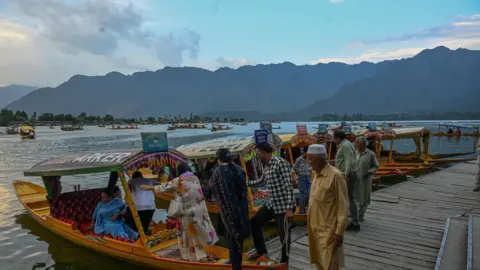 Abid Bhat
Abid Bhat
Tourism is the mainstay of the economy of Jammu and Kashmir
Among the pilgrims taking advantage of the easy connectivity is Ghanshyam Bharadwaj and his wife Mamata Sharma and their children. For the Delhi-based couple enjoying hot sugary tea near the Dal Lake, coming to Srinagar was "a spur of the moment decision".
"It took us just three hours from Katra. We'll spend the night here and take the train back to Katra tomorrow and travel on to Delhi," Mr Bharadwaj said.
"I ask him if he was worried travelling to the valley so soon after the Pahalgam attack?
"There's nothing to be afraid of. This is my country," he says.
Chief Minister Abdullah says the fact that the pilgrims are choosing to come to the valley is a good start.
"Now those who are coming for a few hours, I'd like to see them come for a few days. Those who are coming for a few days, I'd like to see them having the confidence to stay for a week.
"But at least it's a beginning, and that's what helps."
Follow BBC News India on Instagram, YouTube, Twitter and Facebook.

 4 hours ago
2
4 hours ago
2
